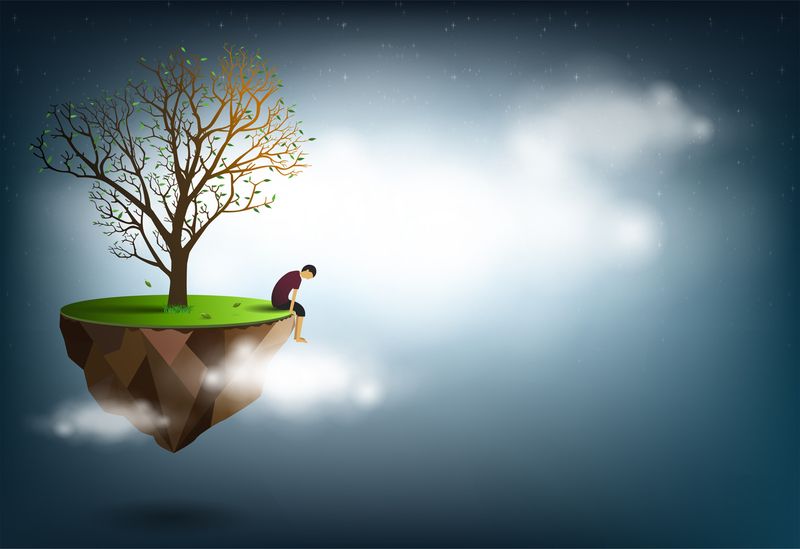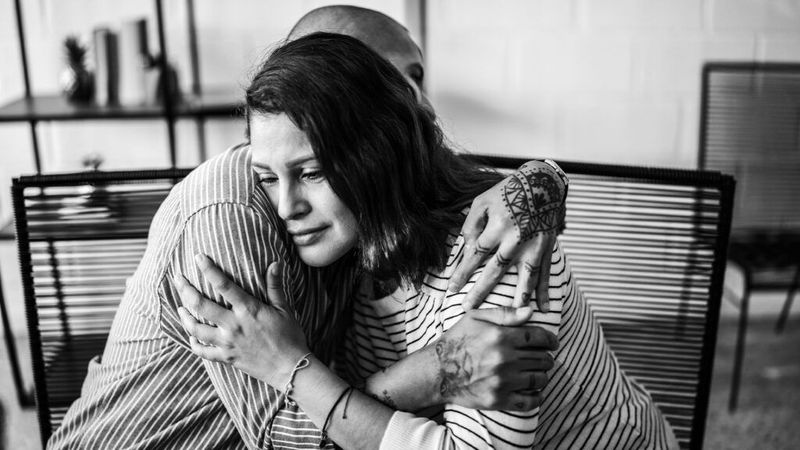You know that feeling you get when you can’t quite explain why certain things hit harder than they should? Maybe it’s the way your stomach knots up when you make a mistake, or how you freeze when someone asks what you want.
It’s not always obvious, but sometimes the deepest wounds are the ones no one could see growing up. This is for the person who wonders if it was just them, or if maybe, just maybe, something about the way you were raised left marks you’re still learning to name.
None of this is about blame. It’s about understanding. If these sound familiar, you’re not broken—you’re surviving.
1. Difficulty Expressing Emotions
Ever been asked, “How are you really feeling?” and your mind just goes blank? That’s not a personality quirk—it’s a scar. I remember freezing up, worried any real answer would be too much, too messy, or just plain wrong.
É como se emotions were a forbidden language at home, one you never got to practice. You got good at nodding, smiling, keeping the peace—anything to avoid rocking the boat.
Now, as an adult, you might catch yourself defaulting to “I’m fine” even when your chest aches. It’s not that you don’t feel. It’s that it never felt safe—or useful—to share.
2. Low Self-Esteem
You know those voices that say you’re not enough? Most people have them, but for some of us, they’re a permanent echo. They started as whispers—parents who nitpicked, ignored, or left compliments unsaid.
Some days, it feels like every achievement is a fluke. You shrink yourself so you don’t take up too much space, convinced you’re just waiting to be found out.
It’s exhausting, really, trying to prove your worth over and over. The real trick? Knowing those voices aren’t yours—they just moved in early and made themselves at home.
3. Fear of Abandonment
Ever find yourself panicking over a text left on read? That click of anxiety isn’t random. It’s the kind of fear bred in homes where love felt conditional—a reward, not a right.
It’s always wondering if you’re too much, or not enough, or just one wrong move from being left behind. You might even push people away before they get the chance to disappear.
Funny thing: the people who crave closeness the most are the ones quietly bracing for goodbye. It’s not drama. It’s survival.
4. Dificuldade em confiar nos outros
Trust didn’t come easy at my house. Promises were made and forgotten, secrets spilled, boundaries crossed like they were invisible.
Learning to trust as an adult feels like trying to build a house with missing blueprints. You want to believe people mean what they say, but your mind whispers reminders of all the times they didn’t.
You’re not paranoid. You just learned early that walls are sometimes safer than open doors. Letting them down now? It’s brave, not weak.
5. Perfeccionismo
It starts with a gold star, a pat on the head, or the silence that followed anything less than perfect. Before you know it, you’re chasing flawless—never quite arriving, never sure you’re enough.
Mistakes feel catastrophic, not just inconvenient. The pressure isn’t about ambition. It’s about earning safety, or maybe just earning a place at the table.
Perfectionism doesn’t make you better. It makes you tired. You’re not alone in that.
6. Desapego emocional
Some people call it numbness. Others call it survival. Either way, you learned to tuck your feelings away, because caring too much felt like a liability.
Maybe you grew up hearing, “Don’t be so sensitive.” Ou talvez you stopped bringing things up altogether because nobody listened.
Now, feeling anything can seem overwhelming. But that distance was once your shield. It just outlived its purpose.
7. Difficulty Setting Boundaries
Saying no sounded selfish. You learned early that your job was to keep everyone happy, even if it meant swallowing what you needed.
Boundaries weren’t walls—they were invisible. And when you tried to draw a line, someone always pushed back, telling you to lighten up or stop making things difficult.
Now, boundaries feel like battlefields. But every time you try, you’re doing what your younger self never could.
8. Chronic Feelings of Emptiness
There’s a kind of emptiness that doesn’t have a name. It’s not sadness or boredom. It’s a hollow that lingers, even when you’re surrounded by people or things you should care about.
You try to fill it—food, work, noise—but it always seeps back in. Growing up, affection felt rationed, like you had to earn it, and sometimes it never came at all.
That emptiness isn’t your fault. It’s the echo of what you missed and the spaces that were never filled.
9. Sensitivity to Criticism
Criticism doesn’t just sting; it burns. One harsh word and it’s like you’re twelve again, heart pounding, bracing for another round of disappointment.
You might blush, get defensive, or shut down—anything to stop that wave of shame from making you feel exposed. Feedback never felt helpful; it felt like proof you weren’t enough.
It takes work to remind yourself that one person’s opinion isn’t a verdict. You deserved kindness first, not just correction.
10. Difficulty Relying on Others
“I’ll just do it myself.” If this is your motto, you probably learned it the hard way. Dependence was risky—help came with strings or never showed up at all.
You got so good at handling things solo, you forget it’s okay to lean sometimes. Trusting others feels like giving away a secret weapon.
It’s not weakness to ask for help. It’s healing. And every time you push yourself to ask, you rewrite an old rule.
11. Overly Self-Critical
Some people joke about being their own worst critic. For you, it’s not a joke—it’s a habit that stuck. Every mistake echoes, every flaw feels like a spotlight.
You learned to internalize blame because no one ever stepped in to offer another explanation. Maybe it felt safer to blame yourself than wonder why things hurt so much.
But you’re not the sum of your mistakes. That voice isn’t yours—it just learned your name.
12. Avoidance of Social Situations
You ever stand outside a party and wonder if people really want you there? Not because you’re shy, but because rejection feels like a given, not a risk.
It’s easier to stay away than feel invisible inside a room full of faces. At home, being noticed wasn’t always safe, so you learned to blend in or disappear.
Social situations now? Sometimes they feel like a test you never studied for. It’s not about people—it’s about protection.
13. Difficulty Identifying Needs
You grew up being told what you needed—if anyone asked at all. So now, when someone says, “What do you want?” the question lands like a foreign language.
Maybe you ignore hunger, tiredness, or hurt because you got so used to pushing through. Your needs always took a backseat to everyone else’s.
Figuring out what you want isn’t selfish. It’s a skill you’re allowed to learn, one permission slip at a time.
14. Chronic Guilt
You ever say “sorry” so many times it loses meaning? That’s chronic guilt—a shadow you drag around, even for things that aren’t your fault.
Growing up, you might’ve felt responsible for other people’s moods. Like if you just tried harder, things would be okay. So now, you apologize by default, even for existing.
Guilt isn’t your identity. It’s just an old habit looking for a new ending.
15. Difficulty Expressing Needs
It’s not just about knowing what you need—it’s being able to say it. Maybe you tried as a kid, but the words always got lost in someone else’s noise.
Now, you hesitate, worried you’ll come off demanding or difficult. So you swallow your needs, hoping someone will notice anyway.
But unspoken needs tend to go unmet. Learning to voice them is the real act of courage.
16. Difficulty Forming Close Relationships
You want connection, but every step closer feels like crossing a minefield. Maybe you learned early that closeness meant vulnerability, and getting hurt wasn’t worth the risk.
So you keep people at arm’s length, even if you crave more. Small talk is easy; intimacy feels loaded with possibilities for pain.
Building real closeness is slow, but every honest moment is a stitch in something stronger than what came before.

















